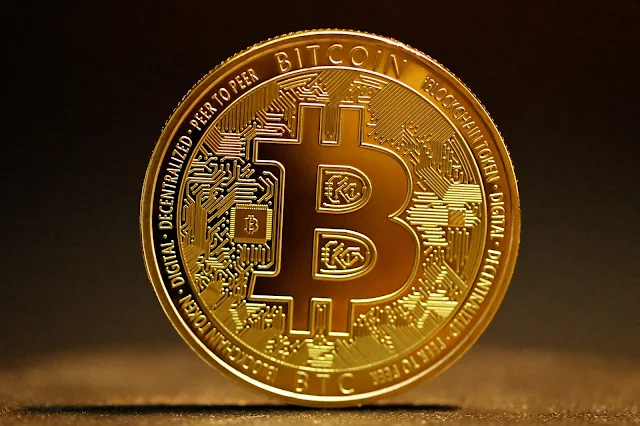Introduction To Cryptocurrency:
Cryptocurrency is one of the most popular and controversial topics in the world of finance today. It is a form of digital money that uses cryptography to secure transactions and control the creation of new units. Cryptocurrency operates on a decentralized network of computers, meaning that no central authority or intermediary is involved.
But what does Islam say about cryptocurrency? Is it halal (permissible) or haram (forbidden) for Muslims to invest in it? This is a question that many Muslim investors are asking themselves, especially as the value of some cryptocurrencies like Bitcoin and Ethereum has skyrocketed in recent years.
Unfortunately, there is no clear-cut answer to this question, as different Islamic scholars have different opinions on the matter. Some view cryptocurrency as halal, while others deem it as haram. In this blog post, we will explore the arguments for and against cryptocurrency from an Islamic perspective, and provide some guidance for Muslim investors who want to make informed and ethical decisions.
What Makes Something Halal or Haram in Islam?
Before we dive into the specifics of cryptocurrency, let us first understand the general principles that determine whether something is halal or haram in Islam. According to Islamic law, also known as Shariah, anything that is beneficial, lawful, and ethical is halal, while anything that is harmful, unlawful, and unethical is haram.
Shariah is derived from two primary sources: the Quran, which is the holy book of Islam, and the Sunnah, which are the teachings and practices of Prophet Muhammad (peace be upon him). Additionally, Shariah is also influenced by secondary sources, such as the consensus of Islamic scholars (ijma), analogical reasoning (qiyas), and independent reasoning (ijtihad).
Shariah covers all aspects of life, including personal, social, economic, and political matters. It aims to promote justice, fairness, equality, and welfare for all people. Therefore, anything that contradicts these objectives is considered haram.
Some of the major prohibitions in Islam include:
- Riba: This refers to interest or usury, which is the practice of charging excessive or unjustified fees for lending money or exchanging goods. Riba is considered a form of exploitation and injustice, as it leads to inequality and oppression of the poor by the rich.
- Gharar: This refers to uncertainty or ambiguity, which is the practice of engaging in transactions that involve excessive risk or deception. Gharar is considered a form of gambling and speculation, as it leads to instability and loss of trust in the market.
- Maysir: This refers to games of chance or gambling, which is the practice of wagering money or anything of value on an event that has an uncertain outcome. Maysir is considered a form of wastefulness and addiction, as it leads to greed and neglect of one's responsibilities.
- Haram products: This refers to anything that is forbidden to consume or use in Islam, such as pork, alcohol, drugs, weapons, etc. Haram products are considered impure and harmful for one's physical and spiritual health.
These prohibitions apply not only to individuals but also to businesses and institutions that deal with money and transactions. Therefore, Islamic finance is a branch of finance that follows the principles and rules of Shariah. Islamic finance aims to create a system that is ethical, transparent, inclusive, and sustainable.
How Does Cryptocurrency Fit into Islamic Finance?
Now that we have a basic understanding of what makes something halal or haram in Islam, let us examine how cryptocurrency fits into this framework. As mentioned earlier, there is no consensus among Islamic scholars on whether cryptocurrency is halal or haram. However, we can identify some of the main arguments for both sides based on the criteria mentioned above.
Arguments for Cryptocurrency Being Halal
Some Islamic scholars argue that cryptocurrency is halal because:
- It does not involve riba: Cryptocurrency does not charge or pay any interest for transactions or storage. Unlike fiat currency (paper money issued by governments), cryptocurrency does not lose its value over time due to inflation or manipulation. Therefore, cryptocurrency preserves the purchasing power and wealth of its users.
- It does not involve gharar: Cryptocurrency does not involve any uncertainty or ambiguity in its transactions. Unlike conventional contracts that may have hidden clauses or terms, cryptocurrency transactions are transparent and verifiable by anyone on the network. Therefore, cryptocurrency eliminates the risk of fraud and corruption.
- It does not involve maysir: Cryptocurrency does not involve any gambling or speculation in its transactions. Unlike derivatives (financial instruments whose value depends on an underlying asset), cryptocurrency transactions are based on real assets that have intrinsic value. Therefore, cryptocurrency promotes productive investment and economic growth.
- It does not involve haram products: Cryptocurrency does not involve any consumption or use of haram products. Unlike fiat currency that may be used for illicit or immoral purposes, cryptocurrency transactions are traceable and accountable by the network. Therefore, cryptocurrency discourages money laundering and terrorism financing.
Arguments for Cryptocurrency Being Haram
Some Islamic scholars argue that cryptocurrency is haram because:
- It involves riba: Cryptocurrency involves interest in its transactions, as it charges fees for processing and validating transactions on the network. These fees are paid to the miners (users who contribute their computing power to the network) as a reward for their service. Therefore, cryptocurrency creates a system of unequal exchange and unfair distribution of wealth.
- It involves gharar: Cryptocurrency involves uncertainty and ambiguity in its transactions, as it is subject to high volatility and unpredictability in its price and value. Unlike fiat currency that is backed by the authority and stability of governments, cryptocurrency is backed by nothing but the trust and confidence of its users. Therefore, cryptocurrency creates a system of instability and insecurity in the market.
- It involves maysir: Cryptocurrency involves gambling and speculation in its transactions, as it is driven by supply and demand rather than intrinsic value. Unlike real assets that have tangible and useful benefits, cryptocurrency is a virtual and speculative asset that has no inherent value. Therefore, cryptocurrency creates a system of wastefulness and greed in the market.
- It involves haram products: Cryptocurrency involves consumption and use of haram products, as it consumes a lot of energy and resources to operate the network. According to some estimates, the Bitcoin network alone consumes more electricity than some countries. Therefore, cryptocurrency creates a system of environmental damage and social harm.
Guidance for Muslim Investors
As you can see, there are valid arguments for both sides of the debate on whether cryptocurrency is halal or haram. Ultimately, the decision to invest in cryptocurrency depends on your personal judgment and conscience as a Muslim investor. However, here are some general guidelines that may help you make an informed and ethical decision:
- Do your research: Before you invest in any cryptocurrency, make sure you understand how it works, what are its benefits and risks, and what are its implications for Islamic finance. You can consult reliable sources of information, such as reputable websites, books, journals, experts, etc.
- Seek advice: Before you invest in any cryptocurrency, make sure you seek advice from qualified Islamic scholars who are knowledgeable about both Islamic finance and cryptocurrency. You can consult reputable institutions, such as Islamic banks, financial advisors, scholars, etc.
- Be moderate: Before you invest in any cryptocurrency, make sure you be moderate in your approach and avoid extremes. You should not invest more than you can afford to lose, nor should you invest less than you can afford to grow. You should balance your portfolio with other halal investments, such as stocks, bonds, real estate, etc.
- Be responsible: Before you invest in any cryptocurrency, make sure you be responsible for your actions and consequences. You should not invest in any cryptocurrency that is involved in illegal or immoral activities, nor should you invest in any cryptocurrency that is harmful to the environment or society. You should follow the rules and regulations of your country and respect the rights of others.
Conclusion
Cryptocurrency is a complex and controversial topic that has no definitive answer from an Islamic perspective. Some Islamic scholars view it as halal, while others view it as haram. As a Muslim investor, you have to make your own decision based on your research, advice, moderation, and responsibility.
We hope this blog post has helped you understand the arguments for and against cryptocurrency from an Islamic perspective, and provided some guidance for making an informed and ethical decision.
If you have any questions or comments about this topic, please feel free to share them below. We would love to hear from you.
This is the end of my opinion. Thank you for reading. Please do consult your muslim scholar before investing in cryptocurrency, Thanks.








0 Comments